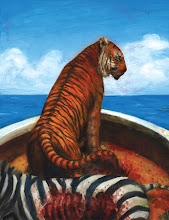
It is now widely known that we are at the brink of exhaustion in the world of parrot rescue, the ever growing numbers of homeless parrots in the USA and UK is now largely contributing to a more hidden and controversial issue. This is what I call the secondary problem.
The secondary problem is one founded on the basis of greed, animal hoarding and exploitation. The issue is now far greater than the amount of homeless parrots; the real issue is now the many unethical, immoral and inhumane parrots sanctuaries and rescuers there are operating in this field. These individuals are operating in an ungoverned lawless ground, where the true rights and welfare of the birds are not adhered to.
The true nature of rescue has been lost for many amidst financial opportunity, exploitation and pure materialistic gain. There are fundamental processes and ethics which should be in place within any reputable rescue and these are not to be found within many 'rescues'. A good basis for any rescue would be to stand at the forefront of halting the vicious circle of mass exploitation; one of the most obvious starting points for this would be to support a Don’t Breed, Don’t Buy policy. There simply is no longer a need to breed birds, with just a little research on the Internet and by making general enquiries with real rescuers, enlightenment of the reality in terms of the large uphill battle they face every year where the numbers of birds handed to them increase.
Birds are born free, we do not own them so it is only fitting that no money changes hands when a bird is rescued. Money is not beneficial to the bird, only to those who wish to profit from something which, ethically they should not. It would also be appropriate to stand against breeding in the interests of Psittacine welfare on a national scale, if you are breeding, promoting or support this act in any fashion, then all you are doing is adding to the exploitation of millions of birds annually.
Birds are all individuals; they are intelligent, emotional creatures that need us, their carers to make their many day to day decisions. Surveying each birds needs is needed greatly, it is not sufficient to make a general judgement on the bird, opting to place every single bird that comes into the rescues care into an aviary, so as it can live as ‘nature intended’ outdoors and amongst other birds is a very general assumption We have domesticated these animals into thinking they are one of us, yes, some are truly wild at heart and long to be with other birds, yet others have been moulded, physically and emotionally into thinking they are human. Therefore their needs must be met by us, they need a human companion, a human family, and it is then the carer’s role to re educate the bird in a time appreciated by the bird itself. These animals have been abused by us, in a bid to ‘tame the beast’ for thousands of years. We have bred these animals in their millions, profited from the mass market of these poor souls, brought them into our homes, placed them in a cage, treated them as mere ornaments, and then moaned when they have exhibited wild behaviours.
This vicious circle must stop.
So, you may be asking, what can I do?, well it has become even more obvious that the biggest issue is a simple lack of education. People do not realise what It is to care for a bird, there are also too many opportunities for people to simply go out and buy a bird on impulse. What needs to happen is for a true halt on all birds sold in pet shops up and down the country to be put into place and all available birds be placed into a national network of re homing centres, where strict criteria must be met before placement of a bird happens. An in-depth education programme should be undertaken as part of the re homing process. By heightening the criteria required to become a bird carer and reducing the opportunities for birds to be readily purchased, along with a properly governed system, we may just save the captive parrot from becoming the most abused and exploited creatures of our lifetime.
Educate people about the plight of the captive parrot, be realistic when people enquire about ‘owning a bird’ many people do not realise the reality of what is is to live with a parrot, always outline the noise, the mess, the cost, the effort, the time and the patience it takes to even adequately care for them. Push for laws and protection of these animals.
If you care for a parrot, be the best carer you can be all of the time, understand and meet your bird’s intelligence and emotion, provide them with a healthy nutritional diet, an avian vet, a clean safe living environment, enrichment and support as well as a flock and a relationship whereby they can safely depend on you.
Rescuing an animal and giving them a second chance is one of the most rewarding things in life, to see an animal step out from the darkness of discontent and flourish in a way they have never before is one of the best things you as a human can give back to the world. Please help stop the secondary problem before it overtakes the real issue here, it will be a very sad world if one day we have to rescue birds from the ‘rescues’.





